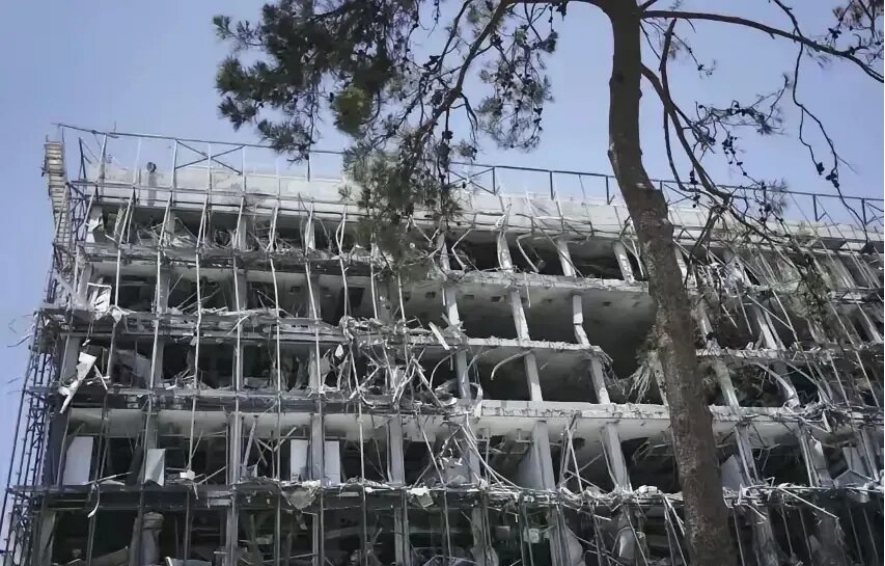
Recently, there have been ongoing conflicts between Israel and Iran, with missiles flying and flames of war raging. From the bustling streets of Tel Aviv to the important port of Haifa, many parts of Israel have suffered varying degrees of missile and drone strikes from Iran, and the sound of explosions has broken the previous calm. Under the shadow of such war, people cannot help but ask: Has the Israeli economy been bombed and stopped?
On the surface, the Israeli economy has indeed suffered a heavy blow, with some sectors even showing a near standstill. In terms of military spending, its defense budget continues to climb. Since the Gaza conflict in October 2023, military operations in Gaza alone have cost 250 billion new shekels by the end of 2024. The newly opened front with Iran is burning money like water, with the operation two days before the war costing about 5.5 billion new shekels. If this pace continues, the cost of the 7-week war will exceed the six-month cost of the Gaza conflict. In 2025, Israel is expected to have a defense budget of 118 billion new shekels. Such high military spending puts enormous pressure on the Ministry of Finance, and the originally planned deficit ceiling may be easily exceeded.
The wave of corporate bankruptcies is also on the rise. In 2023, 44000 companies in Israel went bankrupt, and in 2024, this number increased by 60000, bringing the total to over 100000. Logistics transportation is severely hindered, and cargo ships on the Red Sea route are diverted due to the tense situation, resulting in a significant increase in logistics costs. Restaurant owners who rely on imported ingredients are suffering greatly, and costs are soaring. At the same time, 8% of the country's labor force has been conscripted into the military, leading to a shortage of labor in various industries, disrupting the research and development progress of technology companies, and making it difficult for restaurants to operate normally due to a shortage of manpower. International capital is also avoiding Israel, and once highly sought after technology startups are now deserted, causing investment confidence to plummet.
The tourism industry has been hit hard, and the once bustling tourist attractions are now deserted. A large number of foreign tourists have cancelled their trips, resulting in a significant decrease in hotel occupancy rates, and one tenth of hotels across the country are facing a crisis of closure. The Tel Aviv Stock Exchange has been indefinitely suspended, causing a 9% drop in the exchange rate of the new shekel against the US dollar, and the financial market is in chaos.
However, the Israeli economy has not been completely bombed, and there are some supporting factors that still make it resilient. Israel has a strong high-tech industry as its economic pillar. In fields such as software development, cybersecurity, and biotechnology, Israeli startups and large technology companies have strong capabilities, and Tel Aviv is known as the "Silicon Valley" of the Middle East. Despite the raging war, some high-tech enterprises are still struggling to maintain their operations through remote work and other means, and the application of some technological achievements in the military field has also provided technical support for Israel in the war, to some extent ensuring the operation of the relevant industrial chain.
In the fields of agriculture and food technology, Israel's drip irrigation technology and drought tolerant crops are at the forefront of the world. Although some agricultural production areas have been affected by the war and production has decreased by a quarter, the advantages of agricultural technology still provide them with a certain buffering capacity in dealing with difficulties, ensuring the supply of some domestic agricultural products and reducing the risk of soaring prices caused by agricultural product shortages. In terms of military and defense industry, Israel not only meets its own military equipment needs, but also exports a large amount of military equipment and technology. During the war, orders for the defense industry may increase, stimulating its continued development and driving related upstream and downstream industries to maintain operations.
International support is also an important pillar of the Israeli economy. The United States has always been a steadfast ally of Israel, providing not only military support but also economic assistance. Recently, the United States is considering further increasing its economic assistance to Israel to help alleviate the economic pressure caused by the war. In addition, some international organizations and other countries may maintain economic relations with Israel to a certain extent due to various considerations such as geopolitics and economic interests, so as not to completely collapse the Israeli economy.
Although the Israeli economy has not been bombed, it is undoubtedly standing on the edge of a cliff. The sustained destruction of its economy by war is comprehensive and far-reaching, and even with internal industrial and international support, it is difficult to sustain the long-term consumption of war. Only by achieving peace as soon as possible and stopping conflicts can the Israeli economy gradually recover and return to a normal development track. The international community should also increase its mediation efforts to promote the resolution of disputes through peaceful negotiations between the two sides, which not only concerns the future of Israel's economy but also the peace and stability of the entire Middle East region.

报告显示,中国电力投资加速增长,预计2024年电网基建投资将超过5300亿元。
近日,市场迎来了一则引人注目的消息:工业巨头3M公司(MMM.N)在本周五公布了其季度业绩报告,随后股价飙升至近两年来的
最近,外媒给OpenAI算了笔账,今年可能要血亏50亿美元。
近日,巴黎奥运会和世界铁人三项协会联合发布了一项重大决定,宣布因塞纳河水质污染问题,原定于近期进行的奥运会铁人三项首次下
当地时间7月18日,法国巴黎发生了一起令人震惊的持刀袭警事件。
近期,一则重大消息在国际舞台上引起轩然大波,马来西亚宣布加入金砖国家。
调查发现,互联网和智能手机的使用干扰了韩国近五分之一学生的生活。